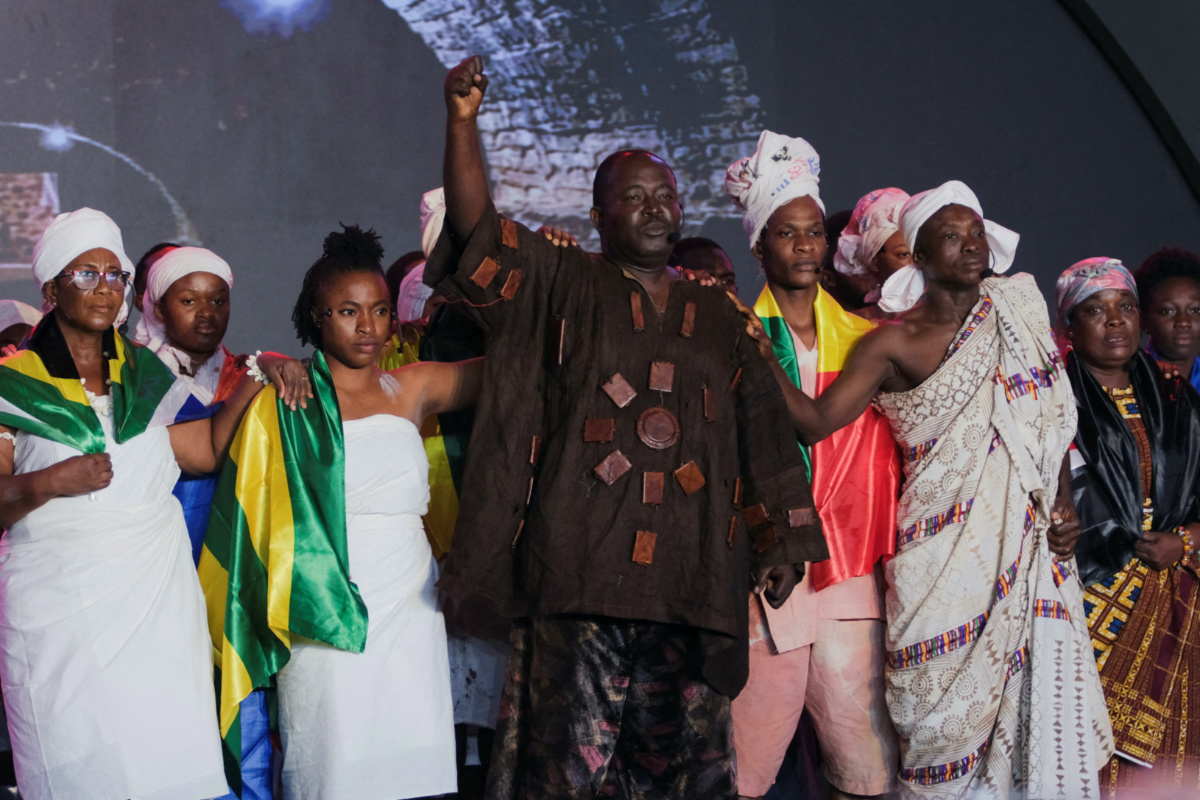Accra, Ghana
Reuters
Financial reparations are long overdue to Africans and the diaspora as compensation for the enslavement of people of African descent, Ghanaian President Nana Akufo-Addo said on Tuesday on the first day of a conference on how to address such historical injustices.

A performance on the trans-atlantic slave trade is staged during the opening event of the African Union’s conference on reparations in Accra, Ghana, on 14th November, 2023. PICTURE: Reuters/Francis Kokoroko
Advocates have long called for paying reparations or making other amends for slavery, but the movement has recently gained momentum worldwide amid growing demands from African and Caribbean countries.
“No amount of money can restore the damage caused by the transatlantic slave trade…But surely, this is a matter that the world must confront and can no longer ignore,” Akufo-Addo said, launching the four-day reparations conference in the Ghanaian capital Accra.
The event is expected to produce an African-led action plan to push for reparatory justice, establish an African committee of experts to oversee the plan’s implementation, and boost collaboration with the broader diaspora, according to a list of planned outcomes on its website.
“The entire period of slavery meant that our progress, economically, culturally, and psychologically, was stifled. There are legions of stories of families who were torn apart,” Akufo-Addo said. “You cannot quantify the effects of such tragedies, but they need to be recognised.”
From the 15th to the 19th century, at least 12.5 million Africans were kidnapped and forcibly transported by European ships and merchants and sold into slavery. Those who survived the brutal voyage ended up toiling on plantations under inhumane conditions in the Americas, mostly in Brazil and the Caribbean, while European settlers and others profited from their labor.
In September, a United Nations report said countries could consider making financial payments among other forms of compensation, but cautioned that legal claims are complicated by the time passed and the difficulty in identifying perpetrators and victims.
Akufo-Addo said he welcomed what he called an unequivocal call from Caribbean nations for reparations.
“We in Africa must work together with them to advance the cause,” he said to applause from the audience that included other African and Caribbean heads of state and other high-level delegates.






